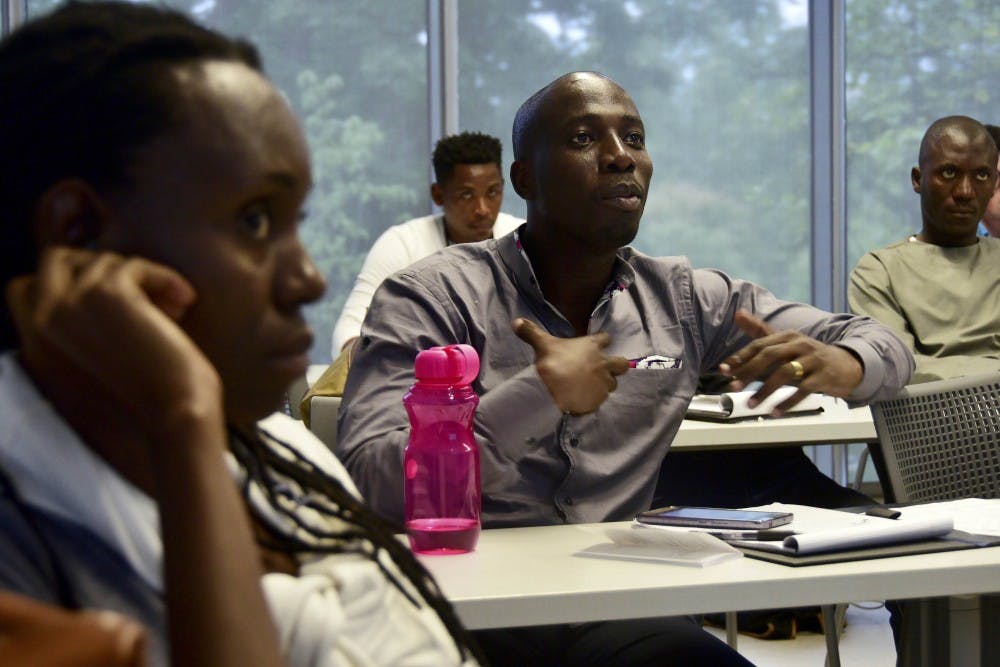The odds were against him and he had already failed once.
Still, when the United States embassy in Swaziland announced the application for the Mandela Washington Fellowship was open again, Thamsanqa Sibandze had to apply.
This year, Sibandze was selected and is now spending three weeks in Bloomington studying alongside other young African leaders.
“We’re just here to find out how the City of Bloomington handles their civic engagement,” Sibandze said. “Obviously, when you go back to Africa it’s a different context, but there’s so much we can learn from just a how-to perspective, and then take that and put that into an African context.”
The program, created in 2014 by President Obama, takes representatives from all 49 countries in sub-Saharan Africa. In all, there are 1,000 applicants selected to travel to the U.S. and study at universities around the country out of around 49,000 applicants.
Sibandze is a hip-hop artist in his home country, but also produces youth radio and TV programs and is an ambassador for Bushfire Schools Festival, which tries to introduce education and entertainment to public schools throughout Swaziland.
He also works with the Safeguard Young People program, which works toward improving the reproductive health of adolescents throughout southern Africa.
But another aspect that makes the Washington Fellowship Program rewarding was the diversity of students selected, Sibandze said. Interacting with all these young African leaders is almost as rewarding as the studies themselves.
In addition to those with similar backgrounds to Sibandze, there are also those with political experience. There are also those, like Mamadou Sy, who have experience in public health.
In his home country of Senegal, Sy has traveled throughout rural areas working as the chairman or chief physician in various medical centers.
“I learned one thing, which is really important, which is how government and business can interact,” Sy said. “In our country, it’s more the government is really powerful and it’s a government that organizes everything.”
Sy pointed to Cook Medical, a private health-based company in Bloomington, as an example of a health institution having influence and interacting with government institutions. When these types of institutions interact, the result is improved quality of life in the community, Sy said. That’s what he said he hopes to bring back to Senegal.
Sibandze agreed and said he was struck with how Americans, especially those in Bloomington, seem to care for one another.
Sibandze has been to large American cities like Los Angeles and New York before. On those visits he saw people concerned with their own well-being. In Bloomington, he saw something different.
The point of the Washington Fellowship Program is to learn how different American cities embrace community and try to replicate that feeling in their host countries.
Sibandze said when he first arrived in Bloomington, he saw what Africa used to be.
Bloomington embraces a philosophical idea called Ubuntu, which roughly translates to “human kindness,” Sibandze said. It’s that idea of a community embracing itself he wants to bring back to Swaziland.
“The spirit of community is still very strong here,” Sibandze said. “I feel like, to an extent, that is what we are moving away from as African societies. This has been such a gentle reminder that we need to go back to celebrating and practicing the spirit of Ubuntu.”






